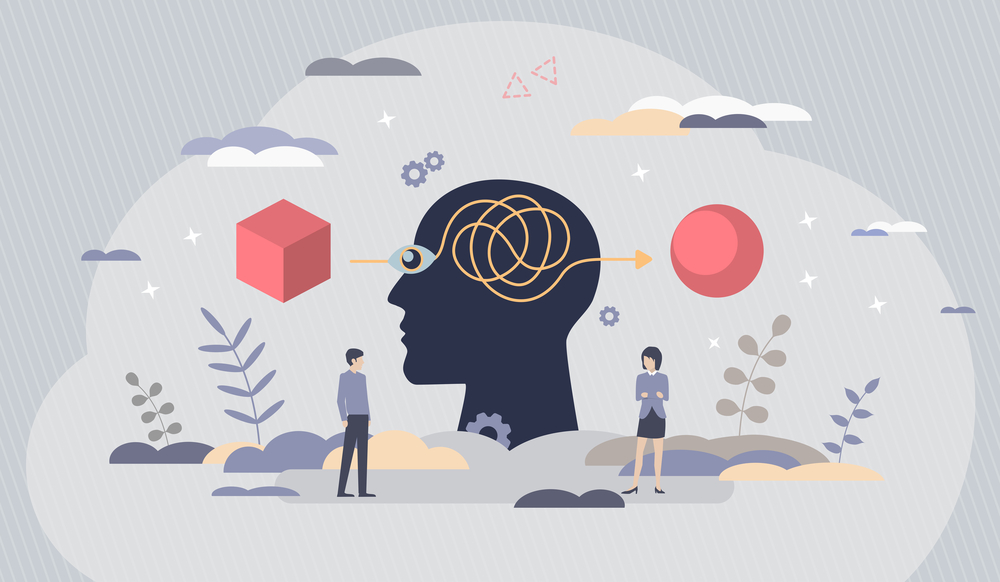The emerging philosophy that positions former mental health patients as crucial contributors to the field is gaining momentum and scrutiny.
In a compelling new study published in Philosophical Psychology, Roy Dings and Şerife Tekin explore the philosophical underpinnings of a movement transforming mental health care. Focusing on the healthcare system of the Netherlands as an example, the article highlights the main conceptual and epistemological challenges of the movement.
Dings, a postdoctoral researcher at Ruhr-University Bochum, and Tekin, an Associate Professor of Philosophy at the University of Texas at San Antonio, engage in a nuanced debate on the role and recognition of ‘Experts-by-Experience’—individuals whose personal encounters with mental health issues provide them with unique insights into care practices.
“Does experiencing something from the first-person perspective generate new knowledge? This question has been debated in philosophy of mind, cognitive science, and neuroscience, with literature containing complex analyses and experiments targeting phenomenal experience and knowledge,” the authors write.
“The ExpEx movement offers profound resources to improve mental health care, especially in light of the contemporary crisis and controversy surrounding mental health research and treatment around the world. We believe, however, that for this movement to realize its potential, some of its conceptual and practical challenges must be addressed.”
 The involvement of service users in mental healthcare has proven effective and ethical. In recent years, there has been an increase in the integration of experts by experience (exp) in mental healthcare. These experts are people who have personal experience with mental illness and can provide valuable insights beyond academic and biomedical knowledge. Despite its growing popularity, there has been little exploration, philosophically and practically, into the role and contributions of these experts in mental healthcare.
The involvement of service users in mental healthcare has proven effective and ethical. In recent years, there has been an increase in the integration of experts by experience (exp) in mental healthcare. These experts are people who have personal experience with mental illness and can provide valuable insights beyond academic and biomedical knowledge. Despite its growing popularity, there has been little exploration, philosophically and practically, into the role and contributions of these experts in mental healthcare.
Although it varies across different institutions, there are a variety of roles that former patients can have in mental health care settings. For example, supporting patients, offering advice, performing research from an experiential perspective, distributing information, and contributing to policy making. There is still limited data on the subject. However, initial research has shown promising results regarding relationships between Exp and current patients, such as an increase in empowerment, fewer self-reported symptoms, and overall better quality of life.
The movement is based on the idea that those who have suffered, lived, and recovered from an illness gain a unique type of knowledge that they would otherwise not have if they had not experienced it. Based on the Netherlands example, experience-based-expertise is when an experience serves as the source of truth and leads to experiential knowledge that may be developed into the competence of experiential expertise.
The authors outline challenges to the movement relating to the ambiguity of the role and contributions of Exps and use a philosophical analysis to open the conversation for how the movement can fully realize its goals and have a positive impact.
“The origins and properties of what can be grouped under the label of the Expertise-by-Experience (ExpEx) movement are complex, as it is not a homogeneous group with clearly defined shared goals and orientations. Rather, it contains many subgroups and movements, including but not limited to the Mad Studies Movement and the consumer/survivor/ex-patient/service user movement that have emerged at different times and in different places,” Dings and Tekin write.
“Yet, central to the development of the ExpEx movement is the reevaluation of the concept of expertise: Who is an expert on what? What special value do patients or Experts-by-Experience have for theoretical frameworks on mental disorders, mental health care, policy, and administration? How do and should Experts-by-Experience (Exp) interact with other experts in the context of scientific research.”
Dings and Tekin argue for a framework that acknowledges the subjectivity of patient expertise while fostering its integration into mental health care, policy-making, and organizational structures. Through this lens, they illuminate the intricate dance between personal experience and professional knowledge, challenging the philosophical status quo and championing a model that marries human rights with mental health research.
They begin with a thought experiment:
“Imagine the following hypothetical scenario: Sarah is often called an expert on depression: after all, she graduated from medical school and has a PhD in neuroscience. She knows all theories of depression, whether biological, psychological, or social. Thus, she knows all there is to know about depression – its genetic and neurological underpinnings, its developmental origins, its relation to stress, the role of particular neurotransmitters, and so on. Sarah has run many clinical studies; she has conducted numerous in-depth interviews with patients (and their families and friends) and has years of clinical experience treating patients diagnosed with depression. Yet, at some point, she herself becomes depressed. Does Sarah learn something new about depression after becoming depressed herself?”
Thought experiments in philosophy are often regarded as powerful tools that reveal our beliefs or thoughts about specific phenomena or experiences. In this context, the author uses a thought experiment to prompt an intuitive recognition that “Sarah, having lived through the depression, possesses knowledge that she did not have before her experience.” This insight forms the cornerstone of the article, probing into the unique and invaluable understanding Sarah gains from her firsthand encounter with depression.
Challenge I: How Experiential Knowledge Is Gained
The first challenge the authors address is what “experience” means and how it translates to experiential knowledge and expertise. Through a consideration of philosophical debates on the phenomenal aspects of experience, the authors make sense of the following conceptual problems.
It is not clear whether a person’s “experience” in ExpEx is about how they encounter something or if it is what they encounter that matters. The “experiences” often pertain to the process of recovery, which becomes unclear when considering experiences such as autism that do not operate under the same temporality as other experiences such as depression in terms of “recovery.”
Additionally, the authors approach issues with the classification of illness through a philosophy of science lens. The major challenges are with the reliance on DSM classifications for the basis of someone being an Exp, which requires a reified portrayal of a particular illness, and DSM classifications do not account for the complex and multifaceted experiences people who are diagnosed with the same disorder may have. Furthermore, the phenomenology of experience is complicated as people interpret themselves through the lens of their diagnosis.
Challenge II: Objectivity-Subjectivity Debate
The second challenge the authors point out is related to worry over the subjective viewpoint of individuals impacting the scientific process, which has a goal of maintaining objectivity.
In response, the authors apply tools from the philosophy of science that reframe the objective-subjective dichotomy. Tekin argues that the subjectivity of experience in psychiatry is an asset since patients understand the challenges associated with mental illness, they can report on responses to different treatments, they understand how illness might affect various aspects of their lives, and they understand how the scientific framing of their mental disorder affects the kind of interventions they receive.
Tekin has her own concept of objectivity, called “Participatory Interactive Objectivity,” which embraces patient inclusion, described as:
“Psychiatry is a form of social epistemology, i.e., a collective enterprise shaped by a variety of scientific, medical, and testimonial practices that aims to develop knowledge on effective treatments for mental disorders. Building on the feminist philosophy of science, Tekin conceptualizes science as a community activity and takes this social feature of science to be necessary for the objectivity of scientific inquiry.”
Based on this concept of objectivity in psychiatry, not only is the perspective of former patients as experts helpful, but necessary.
Challenge III: Conflicts between Exps and Other Experts
The final challenge outlined in the article is that of addressing disagreements between Exp and other experts. Building off Tekin’s concept of Participatory Interactive Objectivity, this problem can be alleviated by embracing group discussion and disagreement, as decision-making should include patient experts, other experts, and current patients.
They acknowledge initially that the role of exp in mental healthcare settings is still being debated. However, a concrete notable advantage is that relationships between exp and patients may be mutually empowering. The disadvantages, on the other hand, are more philosophical in nature. In particular, the underlying assumptions of exp can create rifts between exp expertise and other expertise.
Dings and Tekin propose an enactive affordance-based framework to provide a clear understanding of the goals of the Experience-based Expertise movement. This framework aims to overcome current conceptual and epistemological challenges and pave the way for its growth.
An enactive framework takes the body, mind, world, and experience as an integrated whole and highlights the interconnectedness of the mind and social world. Affordances, defined as possibilities for action offered by the environment, can serve as a bridge between the subjective and objective and allow for an understanding of how a person’s lifeworld changes in the context of mental disorders and treatment. An affordance-based framework has the following impact on ExpEx:
“People who share a field of affordances or lifeworld have a common understanding that they communicate with others due to shared background. On this view, then, the expertise at stake in ExpEx does not rely on ‘knowledge’ in a more positivistic sense, but on a responsiveness to particular affordances. Having undergone a particular experience transforms one’s responsiveness to aspects of the social, material, and linguistic environment. This person’s field of affordances then matches (or approximates) the field of affordances of someone in the same predicament, enabling them to communicate in a way that someone who has not undergone the experience (i.e., with a very different field of affordances) could not.”
In other words, our perception of the world is shaped by the field of affordances we experience. This is not solely a subjective process but is grounded in our interactions with the social and material world. Instead of viewing experiential and scientific knowledge as binary opposites, the enactive affordance model views them as points along a continuum. It acknowledges that all knowledge is grounded in embodied experience while recognizing that experiences can be systematically studied and understood through scientific methods.
By acknowledging the legitimacy of both forms of knowledge, the enactive affordance model allows for a dialogue where experiential knowledge informs scientific inquiry and scientific methods contribute to a deeper understanding of individual experiences. This mutual informing can lead to more nuanced and effective mental health interventions that are grounded in the reality of patients’ lives.
The model encourages a collaborative approach to knowledge creation, where professionals and individuals with lived experience work together to co-create an understanding of mental health issues. This co-creation respects and utilizes the strengths of both experiential and professional knowledge.
The authors provide a compelling case for integrating lived experiences into mental health care, arguing that these personal insights offer invaluable perspectives that cannot be replicated through academic or clinical knowledge alone. They contend that individuals with personal experience bring a depth of understanding that enriches mental health practices, policy-making, and organizational frameworks. This approach not only aligns with human rights principles but also enriches the mental health research paradigm, bridging the gap between experiential wisdom and professional knowledge.
****
Dings, R., & Tekin, Ş. (2023). A philosophical exploration of experience-based expertise in mental health care. Philosophical Psychology, 36(7), 1415-1434. (Link)















Well, when the self proclaimed “mental health experts” finally garner insight into the reality, which most of us experts by experience already know, that their antidepressants and ADHD drugs can both create the symptoms of “bipolar.”
https://www.amazon.com/Anatomy-Epidemic-Bullets-Psychiatric-Astonishing-ebook/dp/B0036S4EGE
And once the claimed “mental health experts,” either admit to being non-medically trained, or taught in med school, that the antipsychotics, can create both the positive and negative symptoms of “schizophrenia,” via anticholinergic toxidrome and neuroleptic induced deficit syndrome.
https://en.wikipedia.org/wiki/Toxidrome
https://en.wikipedia.org/wiki/Neuroleptic-induced_deficit_syndrome
And they admit that the so claimed “mental health experts” have been using this medical knowledge to harm their patients, for their own profits only … and to the detriment to all they had “first and foremost promised to do no harm,” for decades, if not centuries.
Then, hopefully, we may all move forward in a mutually respectful manner instead. But I do believe that repentance, and a changing from one’s evil ways, by the so called “mental health experts,” is required for us all to work together for a mutually respectful future.
So let’s all hope and pray for the day!
Report comment
“Imagine the following hypothetical scenario: Sarah is often called an expert on depression: after all, she graduated from medical school and has a PhD in neuroscience. She knows all theories of depression, whether biological, psychological, or social.”
Unfortunately, calling this knowledge doesn’t make it so. Calling it objective or scientific doesn’t make it so. She knows some theories that were made up by people with biases and, more than likely, serious conflicts of interest. That’s it.
Report comment
Whilst being FULLY supportive of bringing lived experience Into Mental Health Care…
I am mildly amused, frustrated and a little annoyed at the assumption that objectivity is not something to be expected from those of lived experience.
This quote…
“…argues for a framework that acknowledges the subjectivity of patient expertise while fostering its integration into mental health care”
… positions user experience as subjective… and posits that it must be integrated into professional models. What? Many professionals themselves are calling for new models. Surely lived experience should be at the heart of it?
Most of the ‘symptoms’ that are attributed as cognitive dysfunction in psych models are problematic precisely because they do not recognize that a subjective way of relating to the world IS our default mode. This is the set of frames that needs to be addressed to foster well being.
Moreover… it’s not easy to see how psych theories are asserted at the higher logical level are objective in themselves. Most psych models are based on training, not on an actual understanding of the problem as experienced.
It’s fairly obvious that the established care models alienate so many users / patients / clients, precisely BECAUSE they lack an understanding of lived experience and frequently DO NOT HAVE a way of integrating ‘mental’ experience, let alone ‘lived’ experience into care.
It looks and feels like the dumbing down of lived experience in the professional / peer environment. How about considering the experience of what is called ‘utility’ by psych pros… because if you can’t see the impact on experience, the model being used isn’t worth much.
Report comment
Yippee!!! Yet ANOTHER article on “lived experience” written from (you guessed it!) the “clinicians” point of view! But I must admit it has to be upsetting for them to see their hold on power slowly slipping away…
Report comment
I think there needs to be a discussion in all layers of the crisis/ trauma/ shock emotion world of the concept of the umbrella of trauma/crisis/ shock at times we ALL walk under. Similar in concept to Meister Ekert’s umbrella of nothingness.
In research and publishing it has always been a big No if you want to get published to use the I word. So this is standard practice. But there never should be us versus them in workplaces dealing with crisis. It should be a we framework. I did a small Sera Davidow exercise and looked up impaired Physicians all substance abuse and could not find anything under impaired counselors or social workers or psychologists. Add to that when trauma centers in ER’s were created they left out the soul and emotional trauma. It never ever shoukd have been taken apart.
Report comment
This is a good start, but I have already mentioned several times that there will be many more barriers unless people discover exactly what it is that an experienced individual adds to assessment, treatment, or both. Two areas that stand out to me as possibly the greatest barriers are: Can you be insured if you disclose that you have an existing condition? Can you be vulnerable to discipline or complaints from clients or patients? I believe one reason physicians have often hidden their addiction or mental illness is precisely because their livelihood would be at risk. This will not be any different. I am only considering practical reasons, not the merits of whether it is a good approach or not.
Report comment
It does seem like taking such a philosophical, esoteric approach, the authors are looking past something very basic: psychiatric patients experience mistreatment in healthcare settings. Every patient/former patient who’s experienced mistreatment has a story to tell about the mistreatment and how it impacted them in the moment and long term. These are the stories that need to be heard. This is the knowledge that survivors have that no researcher or expert has. Are people in power willing to hear these stories and believe them and make significant changes in response is the real question.
Report comment
I seriously doubt the people in power would ever do any of those things willingly, much less genuinely. But here’s what I do expect from the so-called “experts” (which articles like this clearly demonstrate): a concerted effort to co-opt the “lived experience” narrative in order to placate the masses under the guise of “philosophy” — which I think amounts to little more than institutionalized window dressing.
Report comment
How does one find a support with a skilled MERIT provider and/or ExpEX to work with a client?
Report comment
Perhaps next time people with lived experience can weigh in on what light they bring to this topic, and whether or not they even want a part of “the system”. I wonder if the system still assumes the contributions of lived experience are FREE?
Report comment
Why not just opt out???
Report comment
A very important research study and well studied by the authors here at MIA. Certainly points to, at least I believe so, a reconceptualization in healthcare away from the current model of Cartesian dualism that we are made of two separate kind of stuff, a body and a soul, but rather a trend towards a property dualism which suggests that while persons are physical substances, we have both physical properties and experiential properties. In this way, healthcare can fully appreciate and explore how lived experience and subjective experience of patients is respected from the diagnostic process right through to treatment and follow-up.
Report comment
One question: How much will that add to the bill???
Report comment
As one who experienced altered states of reality from mixing drugs and mediation and then going to work in a Psychiatric Hospital I can testify to the benefit for the patients to have someone who is willing to non judgmentally listen. However working with Psychiatric professionals who became aware of my background was a very negative experience for me.
Personally i found Occupational Therapists to be easiest to work with and the most understanding. I would recommend having OTs run and support ex-patients as mentors.
Report comment